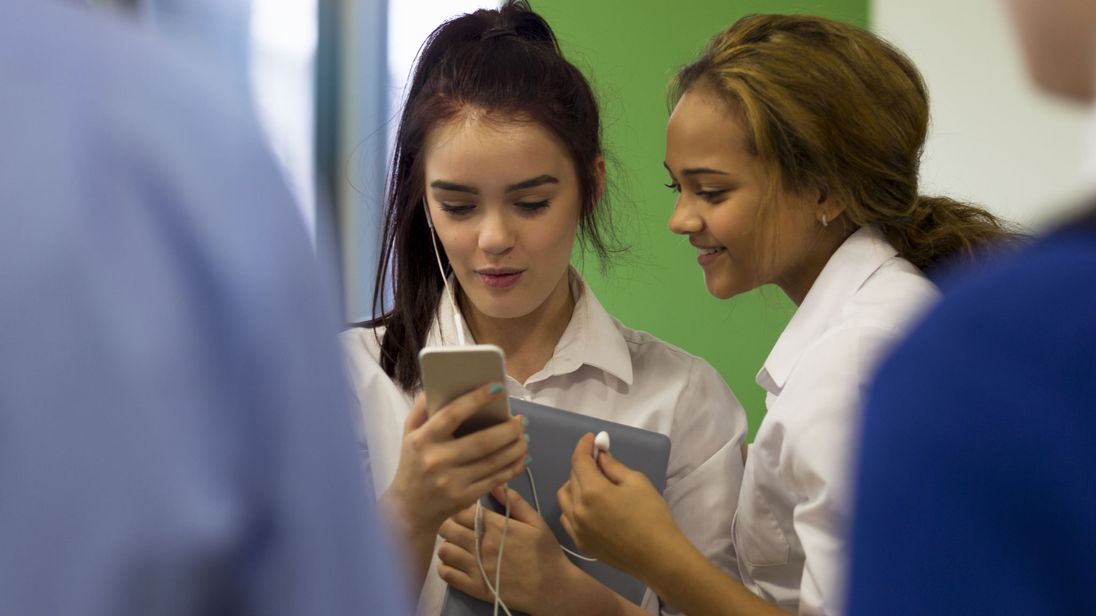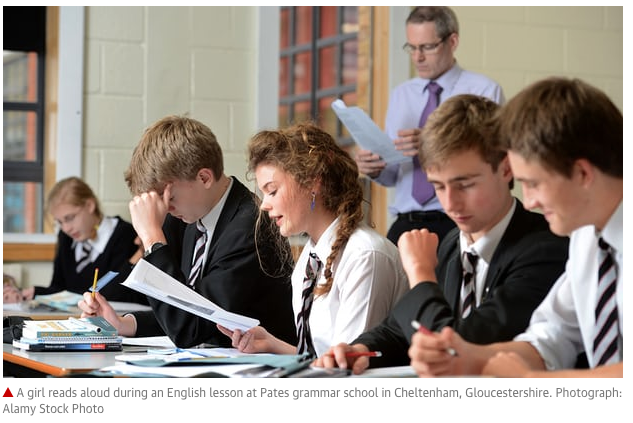|
I use phones and ILT in my teaching a lot - but this article from Sky News talks about banning mobile phones in school all together. And interestingly, in a poll on the Sky News website this morning, 80% of respondents have suggested that mobile phones should be banned from schools all together. The culture secretary misrepresents the findings of a 2015 study when he says that results are impacted by students even just having phones in bags *how cold that be - it is nonsense!) The 2015 study (available here...cep.lse.ac.uk/pubs/download/dp1350.pdf) suggests... By exploiting differences in implementation dates, our results indicate that there is an improvement in student performance of 6.41% of a standard deviation in schools that have introduced a mobile phone ban. The existing literature on the impact of technology in the classroom implies that the unstructured presence of technology has ambiguous impacts on student achievement. We add to this by illustrating that a highly multipurpose technology, such as mobile phones, can have a negative impact on productivity through distraction. Schools that restrict access to mobile phones subsequently experience an improvement in test scores. However, these findings do not discount the possibility that mobile phones could be a useful learning tool if their use is properly structured. Our findings suggest that the presence of mobile phones in schools should not be ignored. Finally, we find that mobile phone bans have very different effects on different types of students. Banning mobile phones improves outcomes for the low-achieving students (14.23% of a standard deviation) the most and has no significant impact on high achievers. The results suggest that low-achieving students are more likely to be distracted by the presence of mobile phones, while high achievers can focus in the classroom regardless of whether phones are present. Given heterogeneous results, banning mobile phones could be a low-cost way for schools to reduce educational inequality. So what is interesting here is two things; firstly, the structured and considered use of mobile phones in scjools can be useful - and with the increase in interactive technologies, that's no surprise. And secondly, and worryingly - there is a difference in the effects that phones have on different kinds of pupils. Banning mobiles has most efect on low achieving students, and less of an effect on higher achieving students. I think this needs more investigation - this is a research project that I am really interested in. The Sky news article is below.... 
Culture secretary Matt Hancock says schools should ban mobile phonesNot content with barring them from the classroom, Matt Hancock suggests they be confiscated from children at the start of the day. Children should be banned from using their mobile phones at school, the culture secretary has said. Not content with merely barring them from being used in the classroom, Matt Hancock has suggested that they be confiscated from children who carry them at the start of each school day. Writing in The Daily Telegraph, he warned that mobiles could have a "real impact" on students' achievements and leave them exposed to increased amounts of bullying. He also questioned why youngsters needed to bring their phones to school in the first place. "There are a number of schools across the country that simply don't allow them," he said. "While it is up to individual schools to decide rather than government, I admire head teachers who do not allow mobiles to be used during the school day. I encourage more schools to follow their lead." Mr Hancock said that "setting boundaries" in relation to how much children were exposed to technology - and notably social media - was vital in protecting them from harm and encouraging them to use the internet safely. "Studies have shown that mobile phones can have a real impact on working memory and fluid intelligence, even if the phone is on a table or in a bag," he added. His column was supported by a letter from seven fellow Tory MPs, also published in the newspaper. Citing a 2015 study by the London School of Economics, they write: "Where schools banned smartphones from the premises, or required them to be handed in at the start of the day, pupils' chances of getting five good GCSEs increased by an average of 2%. "The improvement was even more marked for lower-achieving pupils. Results among pupils in the bottom quarter of achievement improved twice as much as the average."
https://news.sky.com/story/culture-secretary-matt-hancock-says-schools-should-ban-mobile-phones-11410459
4 Comments
Tonight a primary school colleagues told me that their school had been served with a notice from the LEA saying that they were 'at risk of coasting'.
What was happening? Had the school and the staff been galvanised into action? Far from it...the staff were depressed and demoralised. They felt at risk, and that the academy broker vultures were circling. I asked what the figures were looking like, and my colleague said 'I have no idea, to be honest I have seen so many meaningless figures today that I have no idea why it's been decided we are not good enough.' And then, and tellingly... Kids are going home to no food/heat/clean clothes and are experiencing and seeing all manner of abuse and yet they don't give a s**t about that. Just data. And my colleague has ben thinking about leaving the profession. No wonder. |
About me...
I was a psychology and social sciences teacher for many years and now I am in the throes of a leadership, teaching and research career in HE. I care passionately about education. This blog will show you why and how.
Categories
All
Archives
March 2023
|



 RSS Feed
RSS Feed